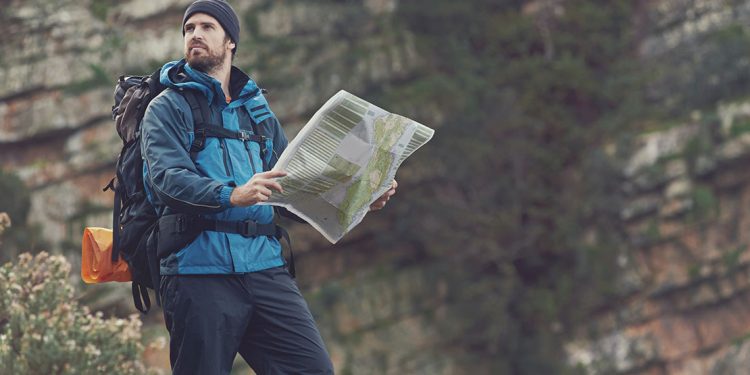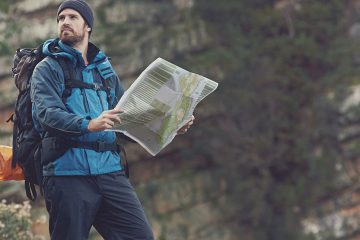
You Don’t Have to Lose Your Way to Find Yourself
So many inspirational Instagram travel accounts share quotes about how getting lost in a foreign country is a delightful experience and necessary for “finding yourself.” While it is inspiring to wander through the streets of an unfamiliar city with no set route and see what you discover, getting truly lost is a different story.
There’s a difference between spontaneous exploration and the unnerving feeling when you don’t know where you are or how to get back to where you want to be.
What happens when you have been walking through a foreign place and realize that you cannot remember the way back to your hotel, it’s getting dark, you don’t speak the language and the neighborhood is starting to feel a little bit creepy? It’s a stressful experience and it can put you in a vulnerable position, especially if you are the type of person who is bad with directions (like me).
So how do you avoid getting lost and what should you do if you do lose your way?
Use Technology
The GPS feature on a smartphone is one of the best tools a traveler can have to avoid getting lost while traveling. You can search for your destination and simply follow the directions. Sometimes it doesn’t work for remote locations and every now and then the address has been entered inaccurately — but most of the time a map app on your phone will be very accurate.
Buy yourself a pay-as-you-go SIM card in your destination so that you can access maps while you are on the go.
If you’re doing some type of adventure traveling where you’ll need to do backcountry orienteering, you might need something a little more reliable than your phone. On the one hand, a portable GPS receiver (such as the Brunton Atlas GPS) can really come in handy. On the other, even GPS devices can malfunction.
That’s where a simpler type of “technology” comes in handy — a compass. Having a compass and knowing how to use it can make all the difference in a survival situation. But hopefully it won’t come to that. Even still, they can be very useful for getting back to where you were, even in a city.
Say you know your hotel is in the northeast section of the city. You can use your compass to find out what direction that is so you can start making your way back.
Ask a Local for Help
Most local people in travel destinations all over the world are friendly and helpful and they will be able to help you figure out how to get where you are going. Don’t be afraid to approach someone and ask directions! If you don’t speak the language of the destination you are visiting it is a good idea to memorize the phrase, “where is…” so that you can ask for simple directions.
It is also a good idea to carry the business card of your hotel on you, so that you can simply show someone in case you forget the name or have trouble pronouncing it.
Traveling helps you meet new people and explore new cultures and ways of life, but there are several other mental and physical benefits of traveling.
What to Do If You Get Lost
Panicking will only make the situation worse, as you are better at solving problems and making decisions when you are calm. Also, looking bewildered and lost will make you stand out as a clueless tourist, which can make you a vulnerable target for pickpockets and scam artists.
If you start to feel yourself getting stressed out, sit down somewhere and take a few deep breaths. Sometimes just sitting down for a few minutes and relaxing will help you to remember your way.
Look for Major Monuments
Glance around for the biggest landmarks at your destination that can be seen from everywhere in the city and figure out your position relative to them – such as the Eiffel Tower in Paris or the CN Tower in Toronto. This will help you head in the right general direction of where you want to be.
Retrace Your Steps
If all else fails and you cannot figure out where you are, you could consider retracing your steps back to where you started. Try to remember the landmarks you pass along the way when you’re walking in order to make this easier. This is a good practice anyway, as it will help you to become more aware of your surroundings and appreciate your destination more.
Once you go back the way you came things will start to look familiar again and you might remember your way back.
These are just a few tips for how not to get lost in the first place and for finding your way if you do become confused. Navigating around an unfamiliar location can be difficult when you first start traveling, but it is a skill that will improve with practice. After a while you will become much better at finding your way and you will be navigating foreign cities and towns with ease.
